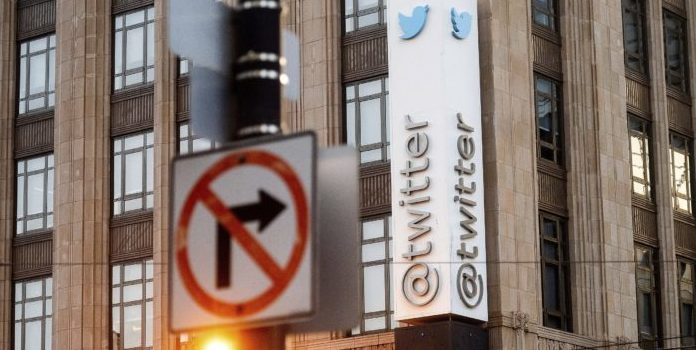(Headline USA) Republican state lawmakers are pushing for social media giants to face costly lawsuits for censoring content on their websites, taking aim at a federal law that prevents internet companies from being sued for removing posts.
GOP politicians in roughly two dozen states have introduced bills that would allow for civil lawsuits against platforms for censorship of posts.
Many protest the deletion of political and religious statements, according to the National Conference of State Legislatures.
Democrats are sponsoring the same measures in at least two states.
The federal liability shield has long been a target of former President Donald Trump and other Republicans, whose complaints about Silicon Valley stifling conservative viewpoints were amplified when the companies cracked down on right-wing users after the 2020 presidential elections.
Twitter and Facebook, which are often criticized for arbitrary and opaque policing policies, took the additional step of silencing President Donald Trump on their platforms after the Jan. 6 insurrection at the U.S. Capitol.
Twitter has banned him, while a semi-independent panel is reviewing Facebook’s indefinite suspension of his account and considering whether to reinstate access.
Opponents argue the legislative proposals are doomed to fail while the federal law, Section 230 of the Communications Decency Act, is in place.
They said state lawmakers are wading into unconstitutional territory by trying to interfere with the editorial policies of private companies.
Len Niehoff, a professor at the University of Michigan Law School, described the idea as a “constitutional non-starter.”
“If an online platform wants to have a policy that it will delete certain kinds of tweets, delete certain kinds of users, forbid certain kinds of content, that is in the exercise of their right as a information distributer,” he said. “And the idea that you would create a cause of action that would allow people to sue when that happens is deeply problematic under the First Amendment.”
The bills vary slightly but many allow for civil lawsuits if a social media user is censored over posts having to do with politics or religion, with some proposals allowing for damages of $75,000 for each blocked post.
They would apply to companies with millions of users and carve out exemptions for posts that call for violence, entice criminal acts or other similar conduct.
The sponsor of Oklahoma’s version, Republican state Sen. Rob Standridge, said social media posts are being unjustly censored and that people should have a way to challenge the platforms’ actions given their powerful place in American discourse. His bill passed committee in late February on a 5-3 vote, with Democrats opposed.
“This just gives citizens recourse,” he said, adding that the companies “can’t abuse that immunity” given to them through federal law.
Part of a broad, 1996 federal law on telecoms, Section 230 generally exempts internet companies from being sued over what users post on their sites.
The statute, which was meant to promote growth of the internet, exempts websites from being sued for removing content deemed to be “obscene, lewd, lascivious, filthy, excessively violent, harassing, or otherwise objectionable” as long as the companies are acting in “good faith.”
As the power of social media has grown, so has the prospect of government regulation.
Several congressional hearings have been held on content moderation, sometimes with Silicon Valley CEOs called to testify.
Republicans, and some Democrats, have argued that the companies should lose their liability shield or that Section 230 should be updated to make the companies meet certain criteria before receiving the legal protection.
Twitter and Facebook also have been hounded over what critics have described as sluggish, after-the-fact account suspensions or post takedowns, with illiberal Democrats complaining they have given too much latitude to conservatives.
Trump railed against Section 230 throughout his term in office, well before Twitter and Facebook blocked his access to their platforms after the assault on the Capitol.
Last May, he signed an executive order that directed the executive branch to ask independent rule-making agencies whether new regulations could be placed on the companies.
“All of these tech monopolies are going to abuse their power and interfere in our elections, and it has to be stopped,” he told supporters at the Capitol hours before the riot.
Adapted from reporting by the Associated Press.

